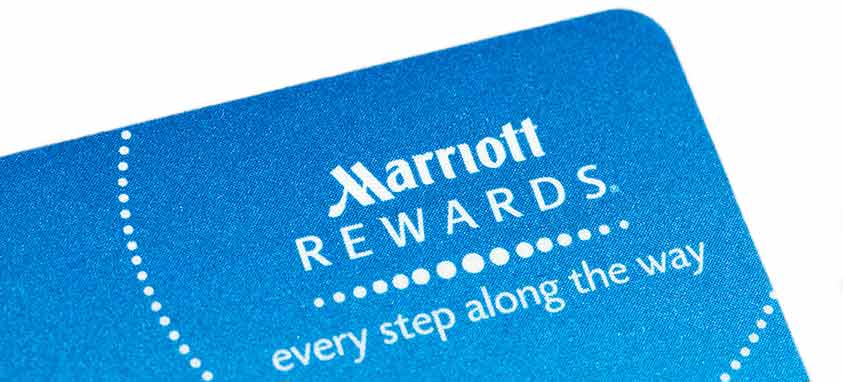Some companies won’t accept them when they book meetings
There are few issues in the meetings and hospitality industry touchier than whether companies and associations should accept brand-loyalty points for meetings and events they book with particular hotel chains. After all, there is potential for unethical behavior.
For instance, planners sometimes steer meetings to certain brands in return for thousands of reward points put into their (or their boss’s) personal account for later personal use. And over the years, meeting-planning associations have held lots of educational sessions addressing the ethical dilemmas that can crop up when hotel-brand loyalty points enter the equation during the site selection and negotiation process.
Many corporate and association groups simply won’t accept points that would come from contracting a meeting. But the reason why points offerings are still part of many advertised meeting packages and other customer solicitations from hotel chains is because they do have impact on a critical mass of buyers.
“Just as the travel industry knows that many people will make extra stops during a flight itinerary to earn more reward points, the hotel companies know that their points programs can influence the behavior of some customers,” says Doug Baarman, senior vice president for major meeting-planning firm ConferenceDirect. Baarman is familiar with supplier thinking because he spent 20 years in hotel sales and marketing before moving to the planner side.
Marriott’s Big Loyalty Program Decisions
The recent acquisition of Starwood by Marriott has again brought this topic to the fore, as the expanded company must make decisions as to which elements of the two entities’ loyalty-rewards programs will remain. For instance, Starwood presently allows conversion of points to airline miles and other out-of-brand benefits, while Marriott’s program is heavily focused on having customers redeem their points within its brands.
Marriott plans to combine the two entities’ rewards programs in 2018, leaving time to work out the details of the new program—encompassing 30 hotel brands in total—to the satisfaction of as many customers as possible. This is relevant not just in light of how the program might be structured to appeal to meeting decision-makers, but also to attendees who pay for their guest rooms and thus earn points for themselves. Especially within corporations, attendees might play a role in determining which brands a planner tries to partner with for a particular meeting.
Despite the issues that tend to dominate the discussion of receiving points for booked meetings, there are a few ways for groups to leverage a brand’s point offerings strictly for the benefit of the meeting itself or the host organization.
“In my experience, I have not seen any meeting planners accepting points and using them for their own personal gain,” Baarman notes. “The planners I work with who accept points for meetings are using them for the good of their organization.”
Putting Points Under a Group’s Name
With some forethought, meeting planners and their companies can indeed avoid any ethical dilemmas while doing this.
For instance, some hotel chains allow points to be placed in a group’s name rather than in an individual’s name. This makes it much clearer as to how points can or cannot be used. Those points can then be redeemed for added value in a high-profit area of hotel operations such as guest rooms; specifically, in securing room upgrades for VIPs and speakers.
On the other hand, lower-profit areas such as food and beverage might not be the best area to use points, because the added value a group derives from the points could be considerably less. In some instances, though, points could be exchanged for a discount to the master account.
What’s more, both associations and corporations could use meeting-related points for a raffle or contest aimed at attendees. Events that need to drum up voluntary attendance can use the points to encourage early registration, where one early registrant is randomly selected to win those points. Alternatively, a corporate or association group can run an attendee-judged competition for the best idea put forth during a meeting, to increase participation and generate excitement.
“Many groups solicit a donated product from a meeting sponsor for a raffle or contest, but it’s possible that the winning attendee doesn’t desire that product,” Baarman says. “Points that can be redeemed for a free hotel stay would be desired by most attendees.”
Groups that like to incorporate socially responsible elements within their meetings could ask if the hotel chain would allow for points to be donated to a charity.
Alternatives to Loyalty Points
Lastly, a planner could decline the points formally during negotiation and prod the hotel to offer a different element of value, such as a few room upgrades for VIPs and speakers, an F&B enhancement or a discount on the resort fee. In such a situation, the points do not enter into the contract, but the discussion of them spurs a business-related gesture of goodwill from both of the parties.
Despite the difference of opinion across the meetings industry about whether it’s best to consider accepting points for booking a meeting, the offers aren’t going away. Bauman says that when there is close competition between properties from different brands trying to land a meeting, points sometimes put one hotel over the top. “So it works for the brands, and it is like found money for meeting groups,” he says.
Planners who are educated and diligent in disclosure to their bosses should have little problem straying far from the ethical boundaries.




